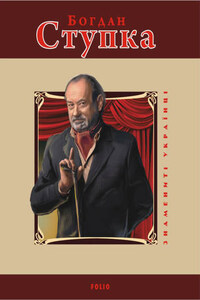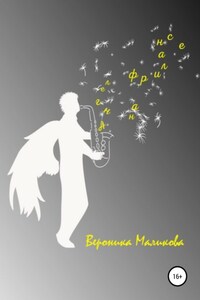CHAPTER I.
THE MARQUIS DE ST. ALAIS
When we reached the terraced walk, which my father made a little before his death, and which, running under the windows at the rear of the Château, separates the house from the new lawn, St. Alais looked round with eyes of scarcely-veiled contempt.
"What have you done with the garden?" he asked, his lip curling.
"My father removed it to the other side of the house," I answered.
"Out of sight?"
"Yes," I said; "it is beyond the rose garden."
"English fashion!" he answered with a shrug and a polite sneer. "And you prefer to see all this grass from your windows?"
"Yes," I said, "I do."
"Ah! And that plantation? It hides the village, I suppose, from the house?"
"Yes."
He laughed. "Yes," he said. "I notice that that is the way of all who prate of the people, and freedom, and fraternity. They love the people; but they love them at a distance, on the farther side of a park or a high yew hedge. Now, at St. Alais I like to have my folks under my eye, and then, if they do not behave, there is the carcan. By the way, what have you done with yours, Vicomte? It used to stand opposite the entrance."
"I have burned it," I said, feeling the blood mount to my temples.
"Your father did, you mean?" he answered, with a glance of surprise.
"No," I said stubbornly, hating myself for being ashamed of that before St. Alais of which I had been proud enough when alone. "I did. I burned it last winter. I think the day of such things is past."
The Marquis was not my senior by more than five years; but those five years, spent in Paris and Versailles, gave him a wondrous advantage, and I felt his look of contemptuous surprise as I should have felt a blow. However, he did not say anything at the moment, but after a short pause changed the subject and began to speak of my father; recalling him and things in connection with him in a tone of respect and affection that in a moment disarmed my resentment.
"The first time that I shot a bird on the wing I was in his company!" he said, with the wonderful charm of manner that had been St. Alais' even in boyhood.
"Twelve years ago," I said.
"Even so, Monsieur," he replied with a laughing bow. "In those days there was a small boy with bare legs, who ran after me, and called me Victor, and thought me the greatest of men. I little dreamed that he would ever live to expound the rights of man to me. And, Dieu! Vicomte, I must keep Louis from you, or you will make him as great a reformer as yourself. However," he continued, passing from that subject with a smile and an easy gesture, "I did not come here to talk of him, but of one, M. le Vicomte, in whom you should feel even greater interest."
I felt the blood mount to my temples again, but for a different reason. "Mademoiselle has come home?" I said.
"Yesterday," he answered. "She will go with my mother to Cahors to-morrow, and take her first peep at the world. I do not doubt that among the many new things she will see, none will interest her more than the Vicomte de Saux."
"Mademoiselle is well?" I said clumsily.
"Perfectly," he answered with grave politeness, "as you will see for yourself to-morrow evening, if we do not meet on the road. I daresay that you will like a week or so to commend yourself to her, M. le Vicomte? And after that, whenever Madame la Marquise and you can settle the date, and so forth, the match had better come off-while I am here."
I bowed. I had been expecting to hear this for a week past; but from Louis, who was on brotherly terms with me, not from Victor. The latter had indeed been my boyish idol; but that was years ago, before Court life and a long stay at Versailles and St. Cloud had changed him into the splendid-looking man I saw before me, the raillery of whose eye I found it as difficult to meet as I found it impossible to match the aplomb of his manner. Still, I strove to make such acknowledgments as became me; and to adopt that nice mixture of self-respect, politeness, and devotion which I knew that the occasion, formally treated, required. But my tongue stumbled, and in a moment he relieved me.
"Well, you must tell that to Denise," he said pleasantly; "doubtless you will find her a patient listener. At first, of course," he continued, pulling on his gauntlets and smiling faintly, "she will be a little shy. I have no doubt that the good sisters have brought her up to regard a man in much the same light as a wolf; and a suitor as something worse. But, eh bien, mon ami! women are women after all, and in a week or two you will commend yourself. We may hope, then, to see you to-morrow evening-if not before?"
"Most certainly, M. le Marquis."
"Why not Victor?" he answered, laying his hand on my arm with a touch of the old bonhomie. "We shall soon be brothers, and then, doubtless, shall hate one another. In the meantime, give me your company to the gates. There was one other thing I wanted to name to you. Let me see-what was it?"
But either he could not immediately remember, or he found a difficulty in introducing the subject, for we were nearly half-way down the avenue of walnut trees that leads to the village when he spoke again. Then he plunged into the matter abruptly.














